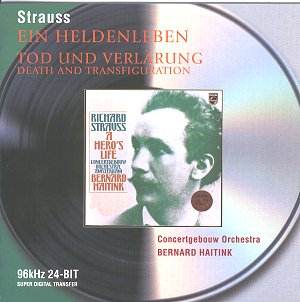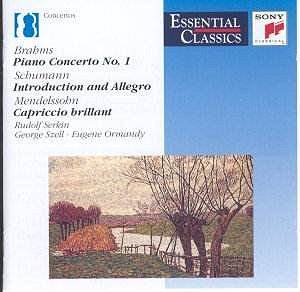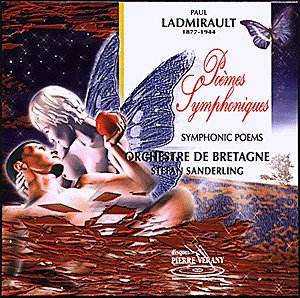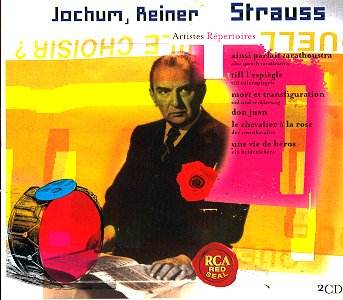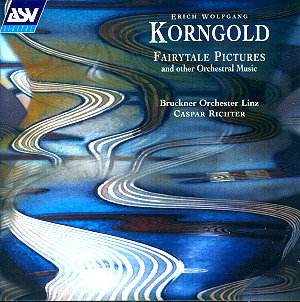 Composer: Erich Wolfgang Korngold (1897-1957)
Composer: Erich Wolfgang Korngold (1897-1957)
Works:
Performers: Bruckner Orchestra Linz, Caspar Richter
Recorded: Brucknerhaus, Linz, 2001
Label: ASV CD DCA 1108 [68:38]
Erich Wolfgang Korngold’s oeuvre has enjoyed a resurgence over the last two decades, and this release by the Bruckner Orchestra of Linz under the baton of Caspar Richter exemplifies the composer’s lush, tuneful aesthetic. The album provides a compelling survey of Korngold’s orchestral works from his precocious beginnings to his final compositions, thereby presenting a vivid portrait of a composer whose career spanned both the concert hall and the cinema.
From the outset, the Prelude and Carnival from Violanta offers a fascinating insight into Korngold’s early orchestration prowess, showcasing a harmonic language that is both expressive and sophisticated. The work’s opening is haunting, setting a mood of suspense that eventually cascades into the rich, opulent textures characteristic of Korngold’s later film scores. Here, Richter and the Bruckner Orchestra embrace the music’s inherent drama, particularly in the transition to the lush orchestration that follows. The sensuousness of the strings, coupled with the poignant calls of the horn, recalls the Wagnerian influences that permeate early 20th-century opera.
The Schauspiel Overture, another early work, maintains this dramatic trajectory. Richter’s approach to the varied sections of the overture is particularly effective; the transitions between the lyrical and the vigorous are executed with a fluidity that highlights Korngold’s dramatic flair. This overture, which made history at the Proms as the work of the youngest composer performed there, showcases Korngold’s youthful exuberance and command of orchestral color. The ending, grand and Wagnerian, resonates with the listener long after the final note.
Fairytale Pictures represents Korngold’s early foray into the world of miniature orchestral works. The seven movements, delicately orchestrated, capture a sense of whimsy that is both charming and technically advanced for a composer of his age. The movement titled The Goblins is particularly notable for its playful nod to Grieg’s Hall of the Mountain King, while simultaneously flirting with the melodic sensibilities of popular musical theatre—as noted, one might detect echoes of The Sound of Music. The Bruckner Orchestra handles these shifts in style with finesse, maintaining a buoyant spirit throughout, although at times, the more cliché-ridden passages teeter on the edge of sentimentality.
Korngold’s later works, such as Straussiana and the Theme and Variations, show a composer reflecting on his heritage while embracing his American experience. The former, a delightful suite reimagining Strauss’s melodies, is marked by a playful wit that the orchestra executes with relish. The pizzicato moments are particularly well-articulated, showcasing the ensemble’s skill in executing the lighter moments with precision. In contrast, the Theme and Variations, which Korngold believed would be his last work, reflects a more introspective mood. The variations unfold with a sense of inevitability, each one building on the last with a profound emotional depth. Richter’s approach here is measured and reflective, allowing the music’s inherent poignancy to shine through without undue embellishment.
In terms of recording quality, ASV has provided a bright and spacious sound that enhances the performances, allowing the nuances of Korngold’s orchestration to emerge clearly. While there are occasional dead sounds between phrases, which may distract some listeners, the overall engineering supports the orchestra’s dynamic range beautifully. The Brucknerhaus’s acoustic lends itself well to Korngold’s rich textures, and the orchestra’s first-rate playing is evident throughout.
Historically, Korngold’s significance cannot be understated. He occupies a unique position at the intersection of late Romanticism and the burgeoning world of film music, and this collection offers a glimpse into both his early promise and his later achievements. His ability to synthesize the operatic and the cinematic is a testament to his versatility and enduring influence.
In conclusion, this recording of Korngold’s orchestral works by the Bruckner Orchestra Linz under Caspar Richter is a vibrant and engaging tribute to a composer whose music continues to resonate with audiences today. With its blend of youthful exuberance and mature introspection, this album is not only a valuable addition to the growing discography of Korngold’s works but also an invitation for listeners to explore the rich tapestry of his musical legacy.
